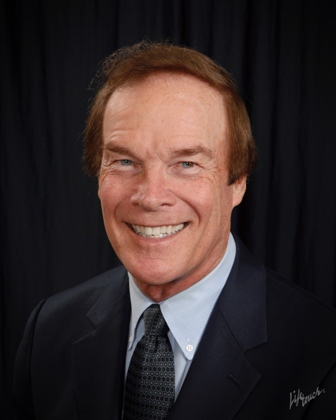{This is a guest post from Bill Lampton, Ph.D.}
Yes, I misspelled perfect because I wanted you to see that it’s OK to make a mistake. You still knew what I meant, didn’t you? Now the good news is that audiences will get what you mean and understand you clearly even though you make a bobble or two here and there. For instance, occasionally you will:
–mispronounce some words.
–stammer or stutter, even though that’s not your habit.
–skip a slide in your PowerPoint.
–drop a book you were holding up to recommend.
–lose your place temporarily
Well, so what? In every instance, these few seconds are only a fraction of the time you are speaking.
Even more significantly, become encouraged by the fact that audiences don’t expect—and certainly don’t want—a flawless speaker. Haven’t you heard this description of a speaker after the event?
“She just phoned it in.”
Interpret that to mean she was robotic, mechanical, devoid of the blunders and bloopers listeners expect you to make. Oh yes, she was flawless. Give her Grade A for that. Yet that’s not commendable because that’s not the way we communicate winsomely.
Here’s a suggestion: Go to YouTube and type in “broadcast bloopers.” You’ll see many dozens of clips that show top professional newscasters pronouncing words wrong, inverting words, and even slipping into accidental profanity. You see, if even the highest paid and best-trained reporters can’t speak perfectly, then why should you put pressure on yourself to deliver an error-free speech?
This may prompt you to wonder, “If I am destined to speak imperfectly, what should I do when I falter?” Simple answer: nothing. Don’t give it any attention, either internally or vocally. Realize you have just proved your humanity, which audiences respond to very positively.
Sure, this thought takes getting used to. From childhood, adults, teachers, mentors, and bosses encourage us to be our best, even our “personal best” as we started hearing a couple of years ago. Yet best does not imply perfect.
Why did golf fans flock to professional Arnold Palmer starting in the 1950s—and lasting long after he won his last PGA Tour tournament in 1973– (with his massive gallery gaining the designation “Arnie’s Army”)? Largely because they could identify with an immensely talented player who missed shots just like they did. Many times Palmer took chances that didn’t work, meaning he had to hit his next shot from deep grass, behind tall trees, and in cavernous bunkers.
Go ahead, then, miss some shots when you speak. Strive to share your ideas with your audience energetically, entertainingly, emotionally, and authoritatively of course.
But forget being perfect.
______________________________________________________________________

This advice appears in Dr. Lampton’s new book, 25 Ways to Control Your Stage Fright—and Become a Highly Confident Speaker! You’ll find the book on Amazon in both kindle and paperback editions.

Joseph A. Michelli, Ph.D. is a professional speaker and chief experience officer at The Michelli Experience. A New York Times #1 bestselling author, Dr. Michelli and his team consult with some of the world’s best customer experience companies.
Follow on Twitter: @josephmichelli




I have just this to say.
Thanks to you for posting this, and thanks to Bill Lampton for writing it.
Thanks Joe for your support!
Thanks for allowing Bill to give that EXCELLENT advice in the above article. I have gotten to know Bill personally over this last year and have seen numerous posts and videos by him and they are ALL “Spot On” with great insights and thoughts.